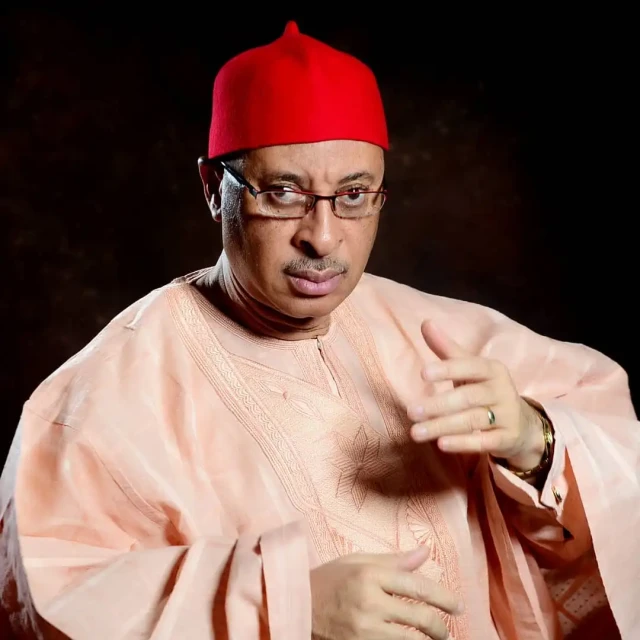The Department of State Services (DSS) has filed a lawsuit against Prof. Pat Utomi, a renowned economist and former presidential candidate, over his establishment of a shadow government a move that has ignited nationwide discussions about the boundaries of political expression in Nigeria’s democracy.
Filed in the Federal High Court, Abuja (case no. FHC/ABJ/CS/937/2025), the DSS accuses Utomi of attempting to undermine state authority and inciting political unrest. The intelligence agency argues that Utomi’s creation of a shadow cabinet contravenes Sections 1(1), 1(2), and 14(2)(a) of the 1999 Constitution, asserting that only democratically elected officials may exercise executive power.
Prof. Utomi, however, defends the initiative as a constitutional exercise of free speech and political participation. According to him, the shadow government is designed to offer alternative policies and provide a mechanism for holding President Bola Tinubu’s administration accountable.
“My intent is to offer Nigerians a responsible alternative that scrutinizes governance through civic engagement not to replace constitutional authority,” Utomi stated during a televised interview.
Utomi’s shadow cabinet includes notable figures such as activist Dele Farotimi, tasked with overseeing good governance initiatives. The structure has drawn both support and criticism across political and civil spheres.
Legal Scholars Divided Over Constitutionality
Constitutional law experts are divided on the implications. Some believe the shadow government borders on illegality due to its structural mimicry of legitimate governance. Others argue that without any coercive power or intent to govern, the structure remains a symbolic exercise of political critique.
“There’s nothing in the Constitution that prohibits political organizations from offering policy alternatives,” said Chuka Ezebube, a constitutional lawyer. “The DSS must tread carefully to avoid suppressing democratic dialogue.”
Civil Society Warns of Democratic Backslide
Several civil society groups have condemned the DSS action as a potential misuse of state power. The Civic Freedom Initiative and the Centre for Democracy and Development argue that political dissent even in the form of shadow governance should be protected in a functioning democracy.
“Democracy thrives on dissent. Criminalizing critique undercuts the very essence of participatory governance,” said Aisha Bala, spokesperson for the Civic Freedom Initiative.
Public Opinion Mixed as Case Awaits Hearing
Reactions on social media and among the public vary widely. Supporters of the DSS fear the shadow cabinet could create confusion and erode state authority. Others applaud Utomi’s move as courageous and necessary in a political environment they view as increasingly intolerant of opposition.
The case, currently awaiting court assignment, is being closely watched by analysts and rights groups alike. It is viewed as a litmus test for the depth of Nigeria’s democratic tolerance and the judiciary’s role in interpreting the tension between national security and political freedom.
This development follows recent calls by opposition leaders for electoral reforms and greater transparency in governance trends that underscore growing public disillusionment with the political status quo.
A Broader Question: Can Shadow Governments Exist in Nigeria?
Globally, shadow cabinets are a recognized part of political practice in parliamentary democracies, where opposition parties offer alternative policy frameworks. In Nigeria’s presidential system, the concept remains controversial and largely unexplored in law.
As the judiciary deliberates, the question remains: Is Pat Utomi’s initiative a bold democratic experiment or a destabilizing provocation? The court’s ruling may shape how far political dissent can go in Africa’s largest democracy.
For a more detailed overview of Utomi’s vision, watch his interview on the shadow government initiative.




















